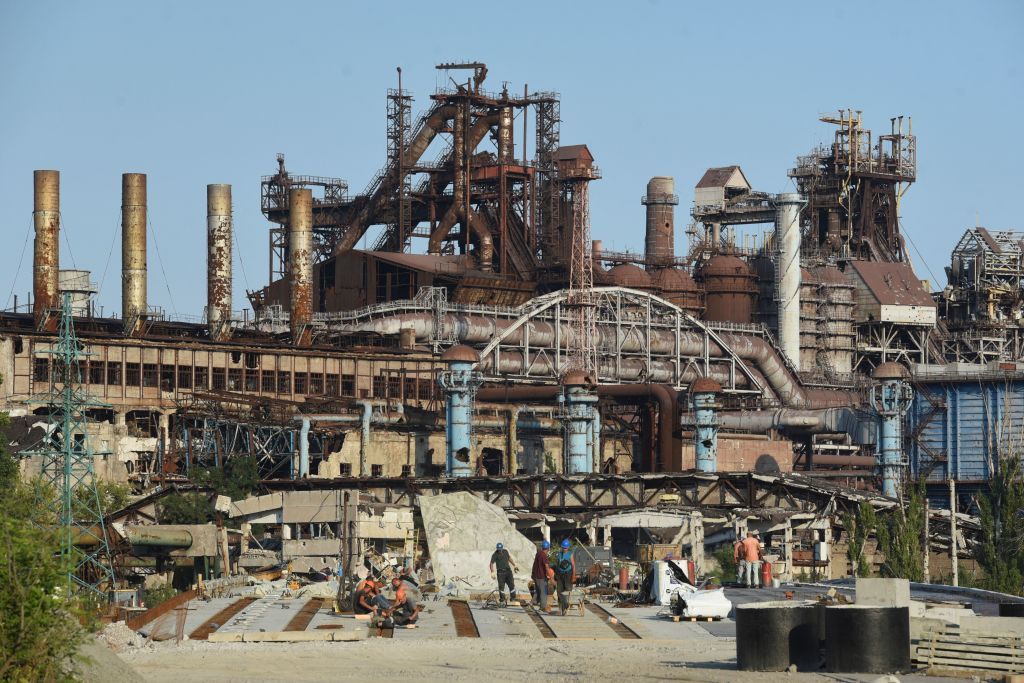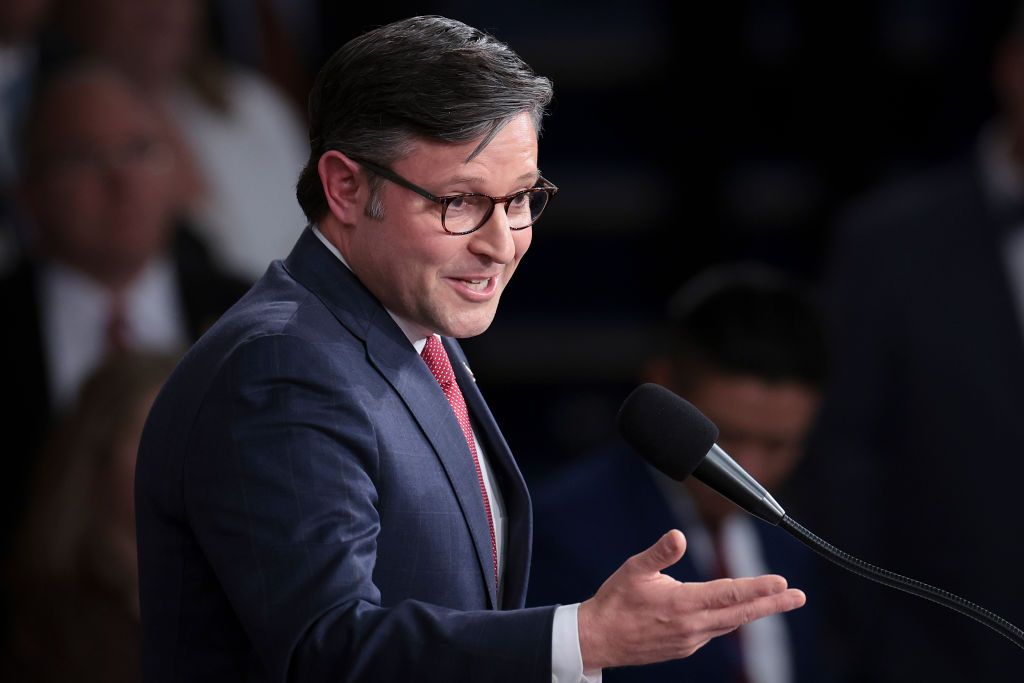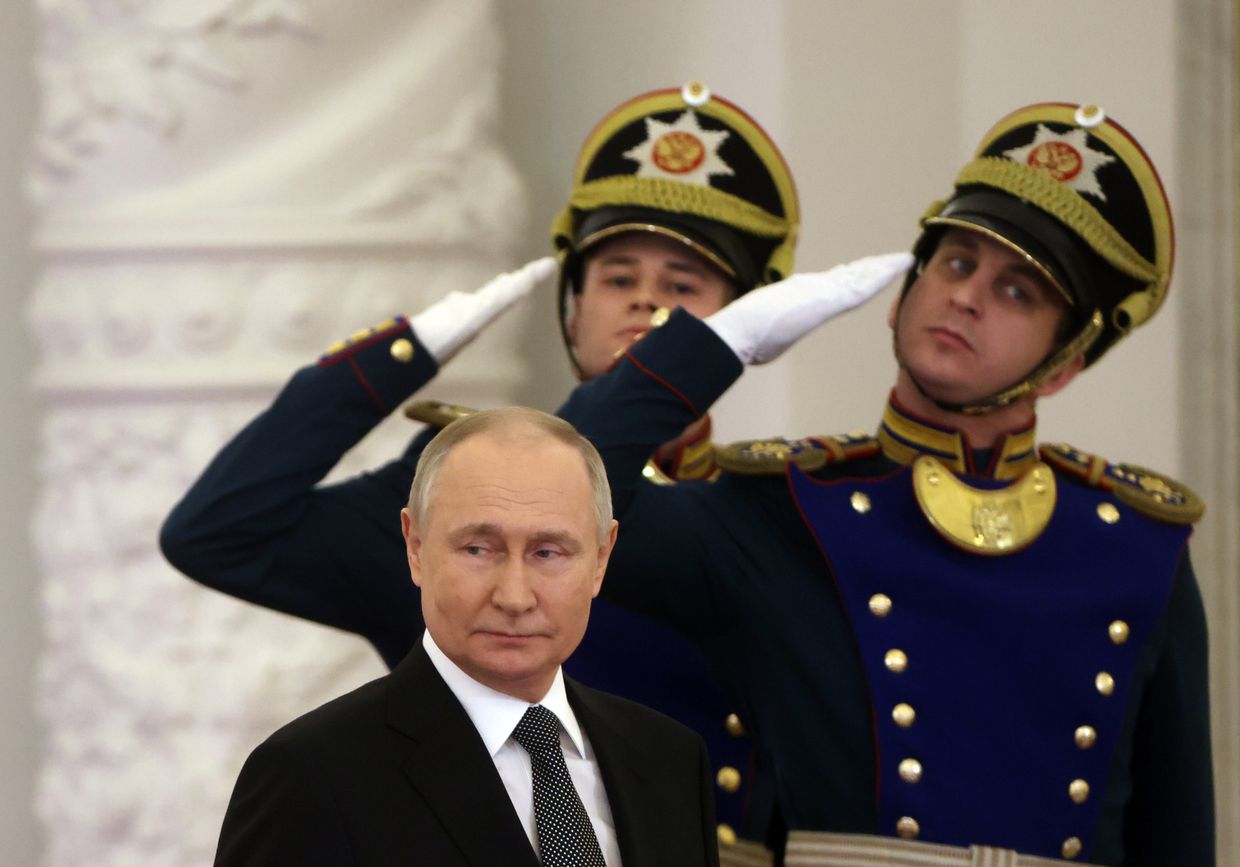Belarus Weekly: Lukashenko visits China, meets Xi Jinping

Lukashenko visits China for a second time this year amid growing isolation and meets China's leader, Xi Jinping.
The U.S. slaps sanctions on Lukashenko's "wallets" – enterprises generating revenue for the regime and supporting Russia's war efforts.
Tsikhanouskaya calls on U.S. Congress to support Belarusian opposition and pressure Lukashenko with tougher sanctions and ICC arrest warrant. Her testimony kickstarted the Strategic Dialogue event, a new form of U.S. government coordination with the Belarusian opposition.
Belarus Red Cross loses funding and IFRC membership after its secretary general, Dzmitryi Shautsou, refused to quit. The IFRC found Shautsou guilty of breaching its integrity policy after he admitted to participating in the abductions of Ukrainian children.
Presidents of Lithuania, Latvia, Poland skip group photo at UN Climate Change Summit COP28 in Dubai in protest at Belarusian dictator’s presence.
Lukashenko meets Xi Jinping in China
Belarusian dictator Alexander Lukashenko met Chinese President Xi Jinping during an unannounced visit to Beijing on Dec. 4 aimed at promoting stronger ties between Belarus and China amid tightening sanctions on Minsk.
The visit is Lukashenko’s second trip to China this year. Highlighting tighter Belarus-China relations, Lukashenko noted that the two countries had exchanged 120 visits “related to cooperation in the manufacturing sector, trade and economy.”
Xi in turn called on both countries to push for more results in industrial cooperation, implement projects like the China-Belarus Industrial Park, and promote trade and personnel exchanges.
“China is willing to continue to strengthen strategic coordination with Belarus, firmly support each other, promote practical cooperation, and deepen bilateral relations,” Xi said.
The Chinese leader also said he supported Minsk’s pursuit of a “development path suited to its national conditions,” and said China opposed “external interference in Belarus’ internal affairs."
China officially recognized the results of the fraudulent 2020 presidential elections in Belarus and criticized Western sanctions against Belarus, branding them an intrusion in the country’s internal affairs.
Sanctioned by the U.S., the EU, the UK, Canada, and others for human rights abuses, repression, and complicity in Russia’s war against Ukraine, Belarus has turned to China to compensate for economic losses.
Trade turnover between China and Belarus amounted to almost $5.8 billion in 2022, having risen by 1.5 times over the past five years.
Lukashenko’s visit is a sign of Belarus’ increasing economic dependence on Beijing.
However, Minsk’s artificial migration crisis and repression, which has resulted in a near-full border closure between Belarus and neighboring EU member-states, has undermined Chinese plans to boost east-west trade via its Belt and Road Initiative.
Belarus was one of the first Eastern European countries to join the massive Chinese project for infrastructure development, and had been envisioned as a gateway through which Chinese goods would enter Europe.
As a sign of China’s discontent, Lukashenko was not invited to the third Belt and Road Forum in mid-October, despite Minsk’s professed commitment to the initiative. Belarusian political analysts believe the meeting might have been dedicated to resolving the transit issue.
China claims to take a neutral stance on the war in Ukraine, and has never condemned Russia’s invasion, maintaining close ties with Moscow.
US sanctions enterprises seen as Lukashenko's ‘wallets’
The United States has sanctioned 11 Belarusian entities and seven individuals to dial up pressure on Lukashenko’s regime for its repression of civil society, complicity in Russia’s war against Ukraine, and for the corrupt enrichment of Lukashenko’s family.
The Department of the Treasury’s Office of Foreign Assets Control announced on Dec. 5 that it had sanctioned Lukashenko’s “wallets” – businessmen who benefit from their close ties with Lukashenko and who in turn sponsor the regime – as well as the country’s revenue-generating enterprises, including companies in the defense sector.
“We will continue to target the Lukashenko regime’s revenue generators, his so-called personal ‘wallets,’ and actors who facilitate Russia’s war of aggression in Ukraine, coordinate the movement of children from Ukraine to Belarus, and support Lukashenko’s authoritarian regime,” Under Secretary of the Treasury for Terrorism and Financial Intelligence Brian E. Nelson said in a statement.
Among the sanctioned individuals, the United States listed Aliaksandr Shakutsin, who controls a sizable share of Belarus’ construction machinery manufacturing with his company Management Holding Company Amkodor (Amkodor OJSC). Also sanctioned were Pavel Tapuzidzis and Viktar Piatrovich, tobacco production moguls behind Belarus’ only private tobacco producer Tabak Invest LLC, which is allegedly involved in smuggling contraband cigarettes across the Belarusian border.
The United States also designated Dzmitry Shautsou, the secretary general of the Belarus Red Cross, as a person deemed to be assisting Maria Lvova-Belova – a Russian official wanted by the International Criminal Court for arranging the forced deportation of Ukrainian children.
The list of sanctioned companies includes four state-owned entities generating revenue for the regime: the Management Company of the Holding Belarusian Cement Company (BCC), the Belarusian Production and Trade Concern of Timber Woodworking and Pulp and Paper Industry (Bellesbumprom), and logistics provider Beltamozhservice.
In the Belarusian defense sector, the company heads of military optics producer BelOMO Holding: JSC Minsk Mechanical Plant, JSC Zenit BelOMO, and Scientific Technical Center LEMT BelOMO were sanctioned, along with the companies themselves.
For supporting Russia’s war effort, the United States sanctioned radar system manufacturer OJSC Alevkurp (Alevkurp), microelectronics developer Planar Research and Production Holdings for Precision Engineering (Planar), and industrial electronics producer OJSC Horizont Holding Management Company (Horizont Group).
While not sending his troops to fight against Ukraine, Lukashenko provided extensive support to Russia by permitting Moscow to launch its assault on Kyiv from Belarusian soil. And not having faced such a strict Western embargo as Moscow, Minsk has been helping Russia to side-step sanctions on military and dual-use goods.
In Congress, Tsikhanouskaya calls for tighter sanctions, material support for Belarus’ democratic movement
Exiled Belarusian opposition leader Sviatlana Tsikhanouskaya has called on the U.S. Congress to financially support the Belarusian opposition and tighten sanctions on the Lukashenko regime, RFE/RL reported from Washington on Dec. 5.
Tsikhanouskaya made the call as she testified to Congress ahead of the U.S.-Belarus Strategic Dialogue, a new initiative organized by the State Department to coordinate U.S. government efforts to support the Belarusian democratic movement.
The event was held in Washington on Dec. 6-7.
The Belarusian leader urged U.S. lawmakers to sanction the Belarusian wood and steel industries, and to close loopholes that allow Lukashenko to dodge restrictions. Tsikhanouskaya also urged lawmakers to approve more aid for Ukraine amidst stalemate in Congress over a bill to grant Kyiv fresh military support.
“We support Ukraine’s just war for its survival, because the fates of our countries are intertwined,” Tsikahnouskaya said. “We’re fighting against the same evil and for the same values. Without a free Belarus, there will be no free Ukraine. And vice versa.”
Tsikanouskaya also called on U.S. lawmakers to urge the International Criminal Court or ICC to issue an arrest warrant for Belarusian dictator Alexander Lukashenko and investigate his involvement in the forced deportation of Ukrainian children.
Tsikhanouskaya said vast material resources are needed to counter Russian propaganda and disinformation, and to help those persecuted by the Lukashenko regime.
Last week, Belarusian law enforcers conducted over 200 raids on properties belonging to exiled opposition activists and their family members. The regime has now jailed nearly 1,500 political prisoners, who face torture-like conditions in detention and require rehabilitation when released.
Speaking at the same hearing as Tsikhanouskaya, Congressman Bill Keating (D-MA) pointed out that the U.S. Congress had approved $30 million in aid for Belarusian civil society and democracy.
“Supporting free Belarus is not a charity,” Tsikhanouskaya said. “It’s your investment in global peace and security.”
Calling for a consistent U.S. strategy on Belarus, Tsikhanouskaya suggested that a special U.S. envoy for Belarus be appointed to work closely with the Belarusian government in exile.
The Belarusian opposition hopes the Strategic Dialog will become a “game-changer” in the Belarusian struggle for a free and democratic country.
“I hope it will give us a chance to turn our country back to democracy and release it from Russian claws. Once and for all,” Tsikhanouskaya wrote in an op-ed in the Washington Post.
IFRC suspends Belarusian Red Cross membership, financing
The International Federation of the Red Cross and Red Crescent Societies (IFRC) said on Dec. 1 that it had suspended the Belarus Red Cross Society and cut financing to it after the Belarus’ branch refused to dismiss its head, Dzmitryi Shautsou.
Shautsou was accused of being involved in the deportation of Ukrainian children to Belarus.
The IFRC called for Shautsou’s dismissal on Oct. 3, after an investigation found he had made statements approving of nuclear weapons proliferation and admitting his organization’s involvement in the forced deportation of Ukrainian children to Belarus.
As the Belarus Red Cross failed to comply with the demand to sack Shautsou before the Nov. 30 deadline set by IFRC, it now loses its rights as a member and its financing, the IFRC said.
In July, Shautsou said the Belarusian branch was involved in the forced deportation of children from Russian-occupied parts of Ukraine to Belarus. He was also seen in the Russian-occupied parts of Ukraine’s Luhansk and Donetsk oblasts in a military uniform bearing the letter “Z” – a Russian pro-war symbol.
The Belarusian Red Cross branch voted unanimously on Sept. 7 to keep Shautsou in office, as the IFRC’s investigation was ongoing.
The IFRC Compliance and Mediation Committee subsequently found Shautsou guilty of breaching its integrity policy, which demands that the humanitarian organization be politically neutral. While the investigation concluded that another organization was responsible for the abduction of Ukrainian children from the occupied territories, Shautsou’s conduct was found incompatible with a governing position at IFRC.
Shautsou, in turn, dismissed the IFRC’s decision as “absolutely political.” He insisted that his trip to Luhansk and Donetsk sought “to prove that children who undergo recuperation in Belarus return home safely.” He also said that the “procedurally correct decision of the Belarus Red Cross board” had been dismissed by the IFRC “to please the Ukrainian authorities, … and the Belarusian opposition.”
A Belarus Red Cross board meeting on Dec. 1 reaffirmed its activities for 2024 and made no reference to the IRFC’s decision.
The IFRC says it remains committed to addressing humanitarian needs in Belarus and that the Belarus Red Cross can be readmitted once Shautsou is dismissed.
According to official estimates, Russia has abducted over 20,000 children from Russian-occupied parts of Ukraine, although the true number is likely much higher.
The International Criminal Court (ICC) in March issued an arrest warrant for Russian President Vladimir Putin and Russian Children’s Rights Commissioner Maria Lvova-Belova for organizing the illegal transfer of children from Ukraine to Russia.
In June, Belarusian opposition activist Pavel Latushka submitted to the International Criminal Court evidence of the forced deportation of 2,100 Ukrainian children to Belarus.
A recent Yale University report established that at least 2,442 children have been forcibly taken from Russian-occupied parts of Ukraine to Belarus. Belarusian authorities have themselves confirmed hosting Ukrainian children, but maintain these are merely “recuperation trips.”
The European Parliament called on the ICC to issue a similar arrest warrant against Lukashenko for his complicity in the crime, while Ukrainian Foreign Minister Dmytro Kuleba has urged the court to do the same for Shautsou.
Three presidents spurn photo-op with Lukashenko at COP28
Lithuanian President Gitanas Nauseda, Latvian President Edgars Rinkevics, and Poland’s Andrzej Duda declined to pose for a so-called “family photo” with Belarusian dictator Alexander Lukashenko at the UN Climate Change Summit COP28 in Dubai, Lithuanian news agency LRT reported on Dec. 1.
“Lukashenko does not belong to any family we want to be a part of,” Nauseda said.
The Lithuanian leader said it would be “insincere” to stand shoulder-to-shoulder with the head of a state that had been a launchpad for Russian aggression against Ukraine.
The UN Climate Change Conference COP28, controversially presided over by Sultan Al Jaber, the head of the National Oil Company of the United Arab Emirates, takes place from Nov. 30 to Dec. 12 in Dubai.
Lukashenko, who is attending the conference amid growing international isolation, is to present his country’s “approaches and proposals to address global climate and environmental security issues” in his address to the conference.
The Belarusian regime has been accused of manipulating emissions data in its official greenhouse gas reports and massaging figures in reports on its progress in achieving the UN’s Sustainable development goals.














